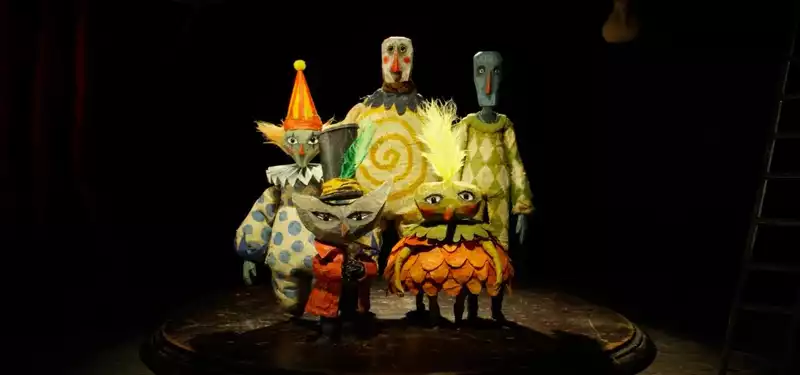May 6, 2020
The Segregation Chronicles How an isolated Aardman filmmaker kept a stop-motion project going
In the latest installment of this series examining the coronavirus crisis from an industry insider's perspective, we speak with Joseph Wallace, an animation director based in Bristol, England. Wallace is best known for his stop-motion shorts, including his BAFTA Cymru-nominated graduation film "The Man Who Was Afraid of Falling" and the music video for Sparks' "Edith Piaf (Said It Better Than Me)." His latest film, "Salvation Has no Name," was infected with the coronavirus while in production at Aardman Animations' Bristol studio.
Growing up in Bristol, Wallace fell in love with animation through Aardman's early short films. So when, decades later, he was invited by this prestigious studio to direct a new short film, he was honored. He had been developing Salvation Has no Name, an ambitious 16-minute stop-motion folk tale about the refugee crisis, for nearly six years. Aardman co-founder Peter Lord admired Wallace's work and allowed him to produce it in one of his studios.
The short, produced by Manchester-based DeLaval Films, was weeks into filming when the coronavirus reached the UK. Frustrated by the government's "lack of action," Wallace decided to shut down production on March 20. 'We went home and gathered whatever useful equipment and materials we could take with us. I think we were the last people working at Aardman." Three days later, the country entered its current state of blockade.
Wallace's experience was the same as that of the entire stop-motion sector: "There is a little parochial narrative circulating that the British animation industry is open for business, but I don't know of a single stop-motion production that was forced to close." The director likened stop-motion production to theater, which he used to direct. "The animators are mastering the puppets, finding the characters through movement and dialogue. ...... All of that energy and atmosphere is palpable.
Wallace spent more time tweaking and editing the puppets and concentrating on voice work than leisurely waiting for the studio to reopen. Meanwhile, he and the producers decided to launch a Kickstarter to "help the production get back on its feet from the other side of segregation. The funds would be used for production needs, such as re-lighting and re-dressing the set, extending the animators' contracts, and hiring another animator and cinematographer to make up for lost time.
The director was anxious. "It was a big risk to reach out to the animation community at a time when creatives and workers around the world are facing so much uncertainty. He was therefore surprised when his initial goal of 7,000 pounds ($8,700) was reached in a matter of days. He has now expanded it to 10,000 lbs.
"This work has been supported by tremendous goodwill, passion, and wonderful collaborators who work for much lower rates than usual," he says. "This pandemic has left the production divided and its future in jeopardy. ...... I am incredibly grateful for everyone's support so far and can't wait to go back and finish the film.




Post your comment